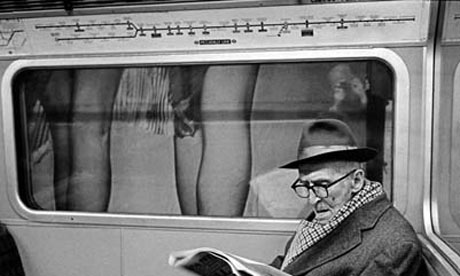 It was a dark and stormy night. No, no it wasn’t, but that’s okay. A great horror story doesn’t need to start in the dark, or in the middle of a thunderstorm, and to be honest it doesn’t even have to occur at night. Contrast is what makes the horror genre so interesting, and appealing. Sure, good and evil exist in various states across literary lines, but nowhere else is the line so diverse, polarized, and/or gray. This is not to say other genres cannot share in this eternal struggle, but they may have binds with the antagonist being a young boy who commands the death of those around him, a la The Omen.
It was a dark and stormy night. No, no it wasn’t, but that’s okay. A great horror story doesn’t need to start in the dark, or in the middle of a thunderstorm, and to be honest it doesn’t even have to occur at night. Contrast is what makes the horror genre so interesting, and appealing. Sure, good and evil exist in various states across literary lines, but nowhere else is the line so diverse, polarized, and/or gray. This is not to say other genres cannot share in this eternal struggle, but they may have binds with the antagonist being a young boy who commands the death of those around him, a la The Omen.But how do we spot these intricacies in real life and get them onto the page? What moments take our hands and close them around the electric fence of terror? They’re easier to spot than you may think. So much of a writer’s life is spent as an active observer, it is of the utmost importance to keep our eyes and ears open, and our damned mouths shut.
You see a man on a train, brown eyes glazed, newspaper propped on one bent knee. He’s there in the morning when you board, and he’s sitting in the same seat when you get out of work nine hours later. Normally, you’d pay no mind. There are hundreds of people on the train everyday, but look a little closer; stretch your memory banks to the day before, the week before, and if you were paying enough attention you’d notice that the newspaper in the man’s wrinkled hands has a headline declaring “Crazy Train: Man Dead for Days Without Notice.” The picture below the heading details the same scene viewed from your eyes. A man on a train, brown eyes glazed, newspaper propped on one bent knee.
The above story is a fictional representation of why it’s important for writers to pay attention and notice details that others would surely overlook. The next fragment is autobiographical, but pertains to what we can do with our imaginations to turn simple coincidence into something strange.
For an entire summer, there was a young girl, probably twelve or thirteen, who would ride her bike around the shop where I worked. Cindy was a gangly creature.  All legs, arms, and a head of hair beauticians would deem ‘frazzled’. She was a sweet girl, waving to me every morning that I drove in the parking lot. Nice as she was, after awhile, she became a little too nice. On multiple occasions she had tried to hug me and my co-workers, which we dismissed as politely as possible. This minor inconvenience turned into something worse rather quickly, as she rode her bike into the building and narrowly escaped being swatted like a bug by a thousand pounds of hard steel.
All legs, arms, and a head of hair beauticians would deem ‘frazzled’. She was a sweet girl, waving to me every morning that I drove in the parking lot. Nice as she was, after awhile, she became a little too nice. On multiple occasions she had tried to hug me and my co-workers, which we dismissed as politely as possible. This minor inconvenience turned into something worse rather quickly, as she rode her bike into the building and narrowly escaped being swatted like a bug by a thousand pounds of hard steel.
Cindy was barred from the premises; a liability for sure. I’d still see her riding her bike in the middle of the road from time to time, and on a Friday late in July, she cornered me in the parking lot as I walked toward my truck. She said hello and I smiled, opening the silver door of my pick-up, hoping she would understand that I was on my way out. No such luck. She pounced between the opening and put both arms around my neck. I kept my hands planted on the steering wheel in shock. She loosened her grip, backed up just enough to kiss me on the cheek, and said, “Be careful.” She giggled and closed the door to my truck. By the time I finished making sure no one had seen what may have been mistaken for some perverted activity, Cindy was gone.
I made it about a hundred yards before I saw the first car accident. It was only another mile before number two. By the time I reached my house, twenty-five miles and two hours later, I had witnessed six accidents. Ambulances, police cruisers, fire trucks; black bags, white sheets, red and blue flashing lights filled my sight, but all I could think about was Cindy and her cryptic message. How many others had she told? Better yet, how many others did she tell something different? Was her presence akin to the “Kiss of Death” or just the opposite? The answer to these questions is what drives me to write, and the instances that provoke them are what makes writing horror so rewarding.
About Derek Hayes:
Derek Hayes is a graduate from Goddard College’s BFA in Creative Writing program. He can be reached at djhayes87@yahoo.com or at his Web site www.silentepitaphs.com


No comments:
Post a Comment